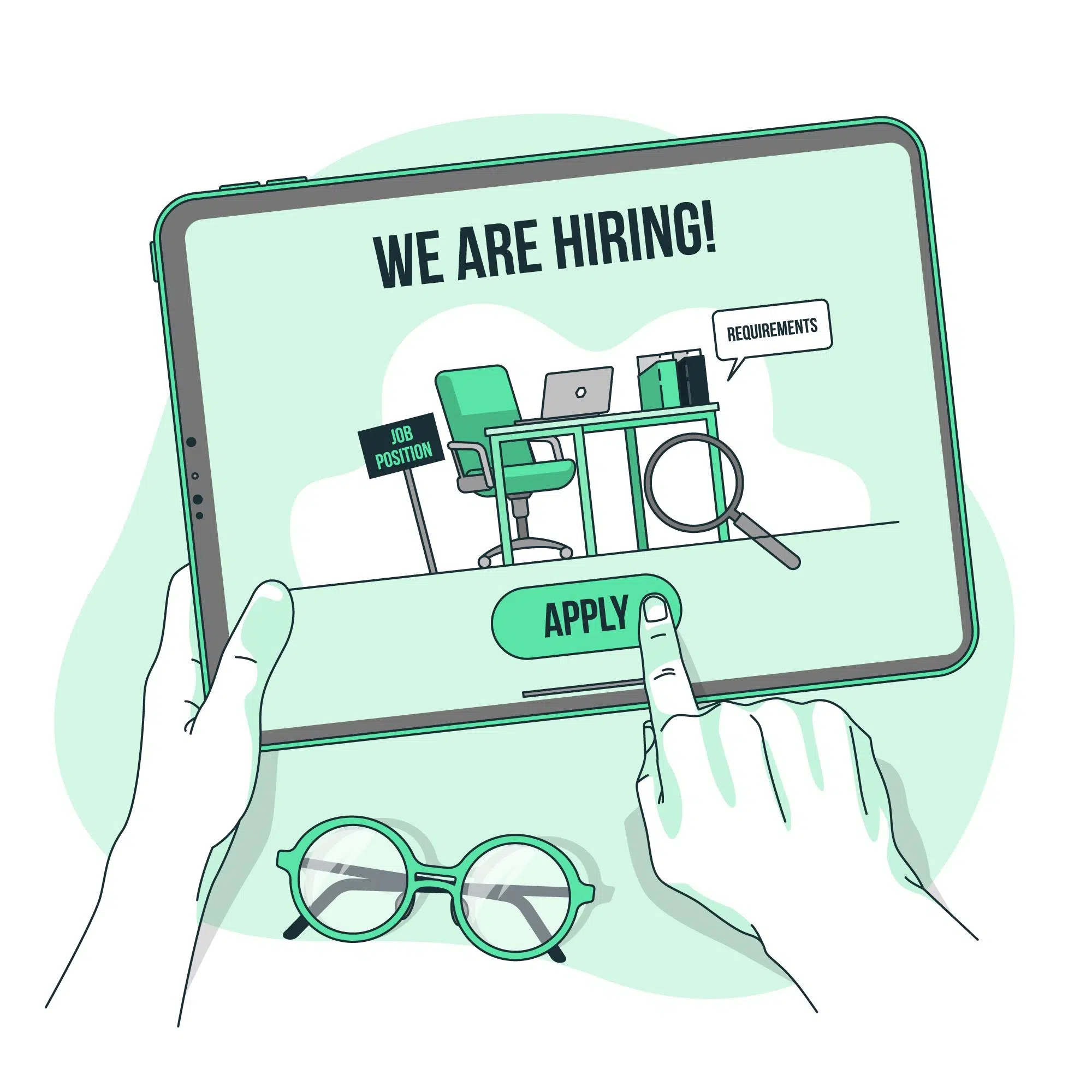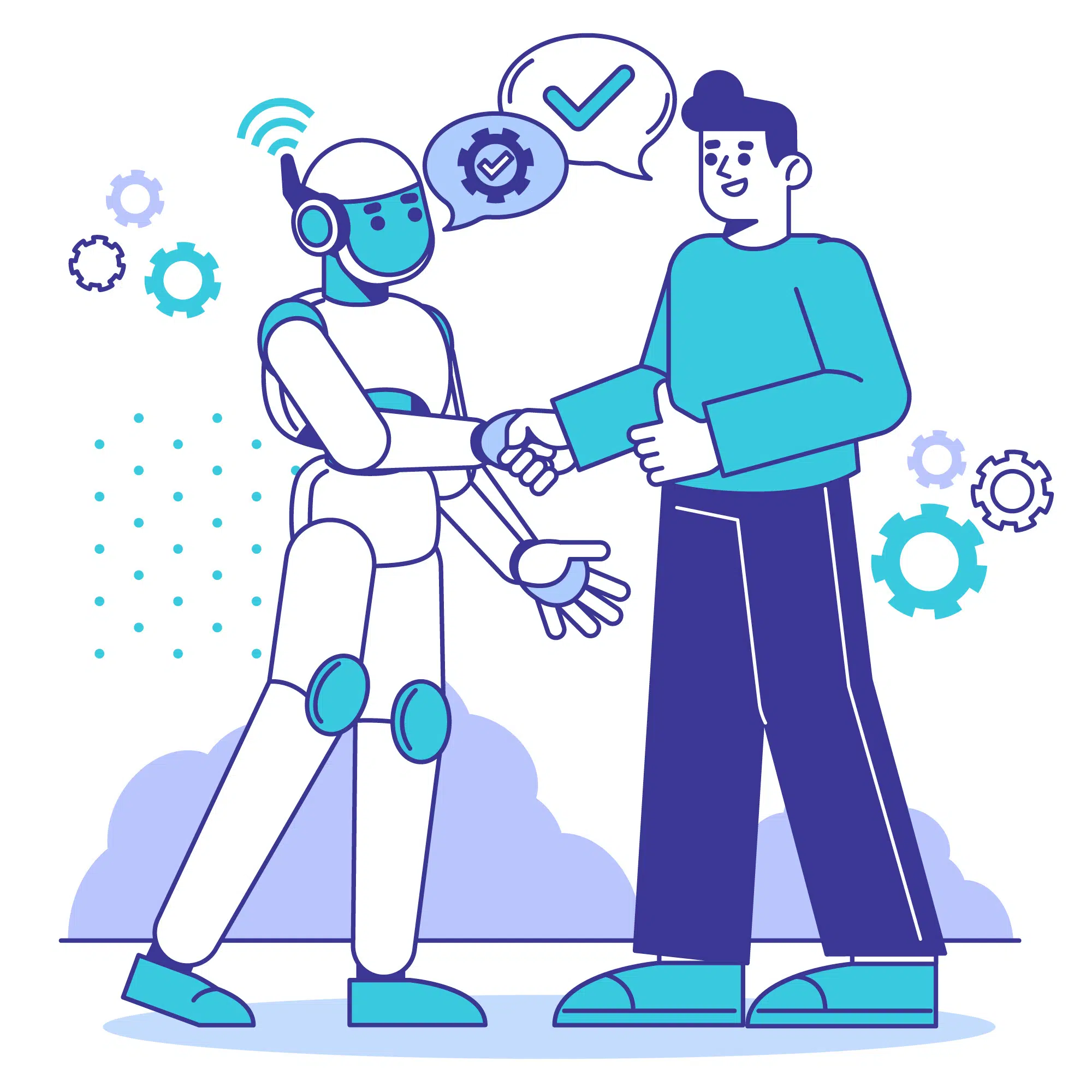
Key Revolutionizing Campus Recruitment in the Phygital Era
The COVID 19 pandemic accelerated the digital transformation journeys of businesses across sectors. Businesses began adopting technologies like AI, the cloud, big data, etc. However, digital interactions cannot completely replace the physical connection; they have simply ushered in a new “phygital” era.
A phygital system is an integration of physical and digital.
Physical + Digital = Phygital
A phygital system leverages the benefits of physical and digital experiences to enhance outcomes.
Although things returned to normal after the pandemic, businesses continued to adopt the highly effective phygital strategies for working. The modern workplace is both physical and digital; that is, phygital. Advanced technology tools facilitate seamless collaboration between entities in a dispersed environment and human-centric strategies ensure that there is a personal connection.
The fusion of physical and digital helps build an omnichannel strategy that merges online and offline experiences. The emergence of the phygital era is driven by factors like the growth of digital innovations and the rising demands of consumers for personalised experiences.
Phygital solutions leverage technologies like AR (augmented reality), VR (virtual reality), AI (artificial intelligence), ML (machine learning), generative AI, etc.
Phygital systems are relevant in the recruitment domain because a combination of advanced technologies and human-centric strategies helps in securing and hiring top talent. Phygital hiring has become popular among recruiters for campus recruitment as well.
In this blog, we will dig deeper into how campus recruitment is conducted in the phygital era!
Let us first look at how campus recruitment has evolved!
Traditionally, campus recruitment was conducted through on-campus visits, in-person interactions and manual processes.
However, technological advancements revamped the traditional processes. Technology has facilitated seamless interactions, optimised processes and fostered informed decision-making.
The digital campus hiring landscape includes AI-driven platforms, gamified assessments, interactive engagement strategies, virtual networking events and more. These techniques enabled businesses to redefine recruitment paradigms, make the most of emerging opportunities and build a dynamic, future-ready workforce.
Today, campus recruitment strategies are powered by GenAI tools that have paved the way for agility and adaptability. Businesses are leveraging advanced data analytics, predictive modelling and AI-driven insights to create customised recruitment strategies that optimise engagement and foster meaningful connections with potential employees.
Technology augments human efforts in enhancing campus recruitment. Thanks to technology, recruiters can now focus on aspects like personal interactions with candidates, either face-to-face or through video conferencing tools. These interactions enable recruiters to build a rapport with candidates and get clarity on attributes apart from their qualifications. Technology also allows recruiters to highlight their brand to candidates.
Phygital recruitment is a win-win situation for both candidates and recruiters.
Phygital creates a better candidate experience throughout the recruitment cycle. It does not require the candidate to travel to the location of the company, thereby saving them time, effort and resources. Candidates can go through the entire process from the comfort of their homes; all they need is an internet connection.
Phygital recruitment has opened doors to new opportunities for candidates because they can seek employment across geographical barriers.
By leveraging technological tools, recruiters save time. At the same time, the process gets completed much faster. Automation technologies take over low-grade manual tasks, relieving humans for tasks that require human intelligence. This not only reduces manual errors in routine tasks but also leads to employee satisfaction. Since most repetitive tasks are automated, recruiters can give personalised attention to the candidates and understand them better. AI-based hiring platforms offer valuable insights to recruiters for better decision-making.
Phygital campus recruitment
Let us look at the impact of phygital on campus recruitment!
Traditional campus recruitment had businesses engaging with students through pre-placement talks, group discussions and personal interviews. However, in the phygital era, traditional methods of engagement like pre-placement talks and case competitions are proving to be ineffective. This has led to a rise in phygital recruitment.
Phygital campus recruitment is a novel method of talent acquisition that combines physical and digital experiences to create a unique campus recruitment platform for students.
Recruiters need to adapt to new methods of connecting with potential candidates. Hence, the focus is now shifting to the use of technology in the recruitment process. Campus recruiters can now connect with students or recent graduates with the help of virtual platforms and tools.
Tools like social media and gamification help engage with campus talent more effectively and engagingly.
Phygital recruitment has made an emphatic presence in the hiring arena in recent times and is being accepted as the new normal of recruitment. And, it has transformed recruitment from a homogenous process to a heterogeneous one with recruiters, hiring managers and candidates distributed across geographies.
Strategies for phygital recruitment
Virtual career fairs
Digital platforms enable businesses to host virtual career fairs, through which they can connect with students across the globe without any requirement of physical travel by the recruiter or the candidate. Platforms like HirePro help businesses showcase their brand, culture and job opportunities to students in an informative and interactive manner.
Social media platforms
Many businesses are leveraging the power of social media to connect with students across the globe. Social media not only helps build relationships but also builds a strong employer brand. It is a very effective tool for building a pipeline of talent for the future. Businesses can attract the attention of the next generation by sharing relevant content that engages students.
Coaching programs
Another technique that is proving to be effective in engaging students in the phygital era is online coaching. Students can connect with industry experts through these programmes and learn from their experience and insights. Phygital communication channels like video calls and online chat platforms enable mentors and coaches to guide and support students, helping them develop the required skills and knowledge to succeed in the field of their choice.
Gamification
Games like scavenger hunts are highly effective for campus recruitment. Gamification creates an engaging experience that offers the students an opportunity to interact with the company’s brand and culture. It also provides recruiters with insights into the talent pool. Additionally, recruiters can gain awareness about areas for improvement in their recruitment strategy.
How hiring platforms facilitate phygital recruitment
Hiring platforms are AI-based software that streamlines the entire recruitment process, from searching for candidates to onboarding.
The following is an example of how phygital recruitment of students takes place:
The organisation advertises the vacancy on social media platforms. The post not only highlights the skill sets, qualifications and other requirements for the job but also promotes the brand. The advertisement may offer simple methods like scanning a QR code to apply for the job. The QR code leads the applicant to an application form where they can update their details.
The hiring software screens the candidates through the ATS (Application Tracking System) and shortlists them. The shortlisted candidates are informed digitally.
Hiring platforms host various skill assessments, aptitude tests, etc. They may leverage technologies like AR and VR to offer candidates an immersive experience. Hiring platforms include features that ensure there is no cheating or malpractice involved in the assessment.
The hiring platform then sets up video interviews through video conferencing tools like Skype, Zoom, etc. with the concerned personnel. It schedules interviews and communicates details such as the date and time of the interview to the candidate and the interviewers. The platform incorporates techniques to avoid any kind of malpractice in the interview.
Based on the interview, the final selection is made. Some organisations might prefer to conduct a face-to-face interview before concluding the recruitment. The outcome of the interview is communicated to the candidates through the hiring platform.
The next step is onboarding the selected candidates. The candidates are asked to share digital copies of their documents, like certificates. The documents are scanned by the hiring software and verified.
Depending on the organisation’s policies, the selected candidates might be directed to a pre-joining medical test.
Once the entire process is completed, the candidate is welcomed into the organisation by the HR team. At this stage, humans take over induction and other tasks from the platform.
The entire recruitment takes place through the hiring platform with meaningful human interactions, making the process truly phygital. The platform completes most of the tedious tasks much faster and more accurately than a human. The software makes the process seamless for both recruiters and students. While the hiring platforms perform several repetitive tasks, humans enhance the process by intervening where a personal touch is required. For instance, regular and personal communication between recruiters and candidates helps build trust and promotes lasting engagement.
Hiring platforms offer a myriad of features to facilitate seamless phygital hiring. However, you must make sure that you choose the right platform that meets your needs.
Conclusion
HirePro is one of the leading names in recruitment technology. It is a robust platform with a host of features that can accomplish end-to-end recruitment. It can be customised to meet the unique needs of your business. The HirePro platform leverages the latest technologies to streamline the recruitment process. It not only simplifies the task of recruitment for HR teams but also enhances the candidate experience.


